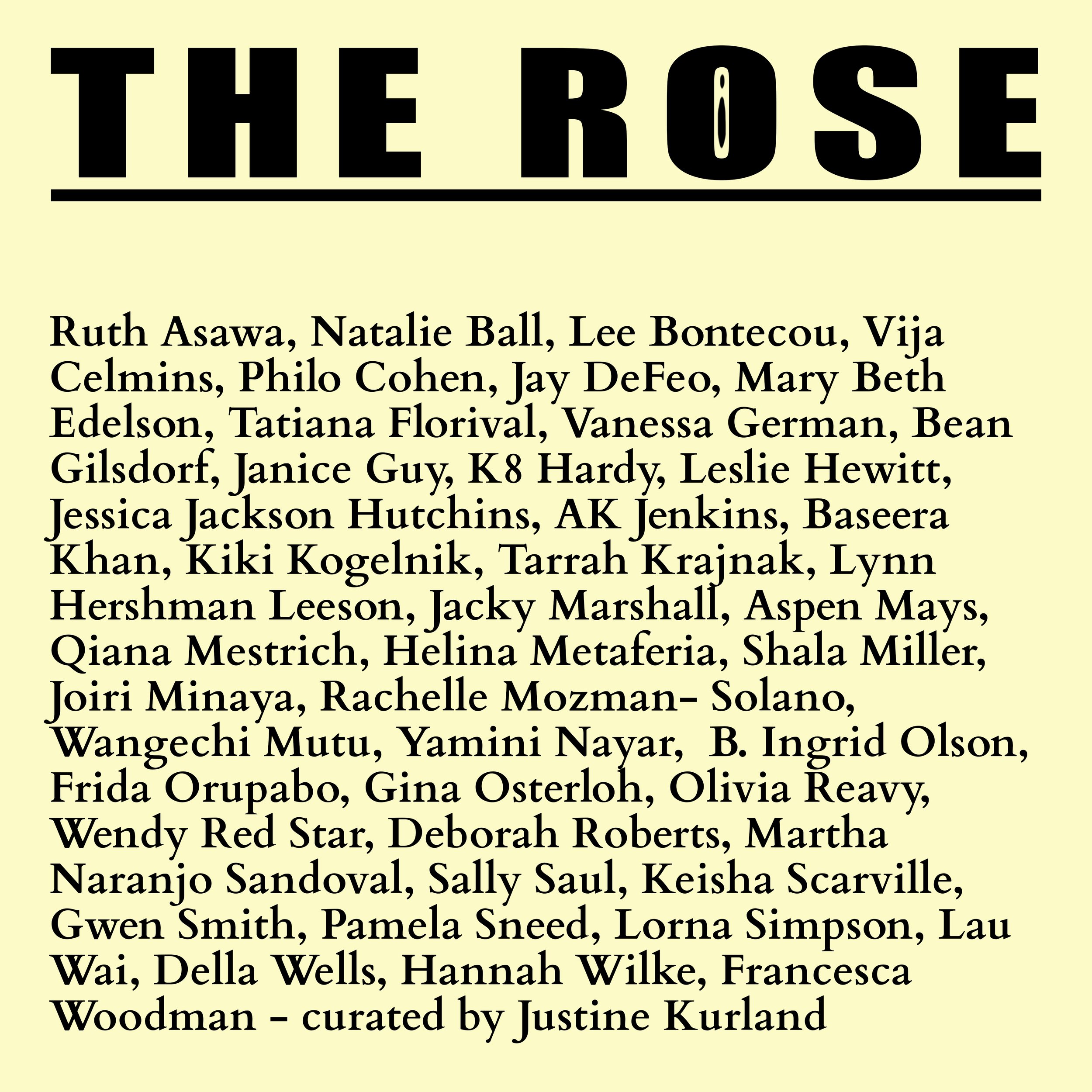The exhibition The Rose, organized by artist Justine Kurland and CPW curator Marina Chao, is a sprawling exploration of collage as feminist form, strategy, and genealogy. It includes works by fifty contemporary artists, as well as several key figures from the 1960s and ’70s.
May 24 – August 31, 2025
Opening reception: Saturday, May 24, 2025, 5-8 PM
Banana Company Artwashes Its Bloody Legacy at Art Basel Miami Beach, by Juanita Solano Roa Ortiz de Solórzano
Sharpe-Walentas Studio Program 2024
Conversations, Silber Art Gallery, Goucher College, Baltimore, MD, All These Things I Carry With Me, 2020, single-channel video, 24 minutes
February 8 2024 - April 5 2024
Something Beautiful: Reframing La Colección (Rotation 2) El Museo del Barrio, NY, NY
The Rose, at Lumber Room, Oregon Artswatch Arts & Culture News, by Hannah Krafcik
All These Things I Carry With Me, Official Selection, Toronto International Women Film Festival, 2022
The Latina Curators and Writers Remaking the American Photography Canon, Aperture Magazine
La Fiebre del Banano: https://bananacraze.uniandes.edu.co
Latinx artists’ incisive and diverse contributions to contemporary American art deserve our devoted attention. These innovative and often invisible practitioners extend and expand upon a rich history of Latinx art in the United States—which includes the oeuvres of Jean-Michel Basquiat, Felix Gonzalez-Torres, Carmen Herrera, and Ana Mendieta. With Latinxs now accounting for more than half of the United States’ population growth, and as US art and academic institutions respond to calls for the representation of BIPOC artists in exhibitions, collections, publications, and dialogues, it seems that public awareness around Latinx art—including the ways in which Latinx artists are currently reshaping the cultural landscape—is increasing significantly. Notably, through their dynamic and often collaborative explorations of art history, race, socioeconomics, immigration, pop culture, and craft, among many other topics, contemporary Latinx artists are debunking purist myths; rewriting narratives around Latinidad; and carving out new, accessible, antiracist spaces for art making and viewing. Indeed, it would seem that the historic marginalization of Latinxs has added an inimitable depth of perspective to these artists’ work.
STRANGE FIRE:
Rafael Soldi interview’s Rachelle Mozman Solano in Strange Fire collective.
Read the interview-
Rafael Soldi: Hi Rachelle, thanks for chatting with us. Strange Fire’s exhibition, An Active and Urgent Telling, centers the lived experiences of the artists in the exhibition, all of whom are non-white women. Your work not only embodies your own lived experience, but also that of the women who came before you—principally your mother. I’m curious about this intergenerational approach to unwrapping identity. Are these images solely about you, or your mother, or about a collective, intergenerational identity?
Visiting Artist Lecture Series: Rachelle Mozman Solano at The Center for Photographer’s of Color at the University of Arkansas School of Art
Visiting Artist Lecture Series: Rachelle Mozman Solano
The Center For Photographers of Color | The University of Arkansas, School of Art
Thursday February 4th, 2021 5:30pm - 7:00pm CST | Zoom Webinar
The Center for Photographers of Color and the School of Art welcome Rachelle Mozman Solano, through the Visiting Artists Lecture Series this Thursday, February 4th at 5:30pm via zoom. Zoom link and information: Passcode: 876464 & Webinar ID: 839 3467 1391
https://www.photographersofcolor.org/new-events/visiting-artist-rachelle-mozman-solano
COLONIAL ECHO: A PHOTOBOOK CASE STUDY
On October 22, 2020, Aurora PhotoCenter moderated an online discussion about the making of Colonial Echo, by Rachelle Mozman Solano, published September 2020 by Kris Graves Projects. From creative choices to economic necessities, Mozman Solano and Graves spoke about about all stages of the project’s development, from initial idea to final publication, plus all the extra challenges inherent in publishing a book during a global pandemic.
The monograph Colonial Echo brings together two of Mozman’s related bodies of work, Casa de Mujeres and La Negra, as well as interviews. The work is based on her family biography, with Casa de Mujeres focusing on the experience and impact of colonialism in Panama, and La Negra addressing the time when her family migrated first to the American south, and then to New York City in the mid 1960s. Starting often from her biography and family history, Mozman explores how culture shapes individuals and how environment conditions behavior. Her work is concerned with the intersection of mythology, history, economics, and the psyche through photographs and films that confound fact and fictional narrative.
Colonial Echo, is a book that brings together two photographic chapters, Casa de Mujeres and La Negra, along with excerpts from interviews. It will be published by Kris Graves Projects, and released in spring 2020.
























